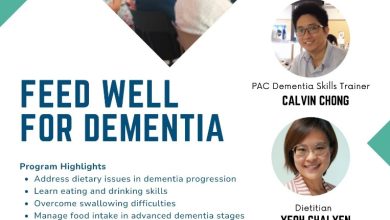

Mild Cognitive Impairment (MCI) is a medical condition in which an individual has mild but measurable decline in thinking abilities and memory. These changes are serious enough to be noticed by the individuals experiencing them or to their family and friends, but not severe enough to warrant a diagnosis of dementia. People with MCI find that their impairment in cognitive abilities do not interfere with their ability to perform daily activities.
A person may start to forget important information that he or she would previously have recalled easily such as appointments, conversation or recent events. This form of MCI which primarily affects memory is known as “amnestic MCI”. Frequently repeating questions and misplacing items would be the symptoms.
MCI that affects thinking skills other than memory is known as “non-amnestic MCI”. Here the ability to make sound decisions, judge time or forgetting the sequence of steps in completing a task is affected. Examples of these would be cooking, operating household appliances, managing their finances. They may experience difficulty in driving where they may get lost and perhaps become involved in a minor or major accident. They may also experience a change in attention, in language skills or visual-spatial skills. Studies report that 10% to 15% of people with MCI progress to dementia per year.
MCI is a clinical diagnosis.The investigation would include a thorough medical history, assessment of the patient’s physical, functional and mental status. A family member or a close friend’s observation is also needed.Laboratory tests and a brain scan would be performed.
As many individuals with MCI are likely to have early dementia, utilisation of therapies for Alzheimer’s disease may be applicable with medication (pharmacological) and non-pharmacological. There is some preliminary evidence that the cholinesterase inhibitor drugs used to treat Alzheimer’s disease might delay the progression from MCI to dementia. Non-pharmacological therapy has an important role which includes physical, leisure and mental activities. Other non-pharmacological interventions include reducing stress, improving the quality of sleep and rationalising medications.The risk of developing dementia may be reduced with healthy eating, exercise and cessation of cigarette smoking. Controlling high blood pressure and managing diabetes would be important.
The implications for detecting MCI can be viewed as mostly positive. Many people with MCI are very aware of and concerned about their cognitive problems.Knowing that they have MCI confirms to them that their concerns are valid and there is a medical reason for their symptoms.They can put strategies in place to manage the problems they have and access support services that can help.Steps can be taken to establish a healthy, active lifestyle, which might help delay the cognitive decline.
People with MCI are more prone to developing problems, such as depression and anxiety, and also developing sleep disorders. They may also experience heightened stress and changes in personality and behaviour. While these things may not happen to everyone with MCI, it is important to treat them appropriately if they do occur.
Regular monitoring is critical since the course of cognitive changes with MCI will vary from each individual. Detection and monitoring of MCI allows dementia to be identified at an early stage if it does develop.This is important given that current treatments for dementia are most effective in the early stages of the condition.As new treatments for dementia become available, it is likely that the detection of MCI will become even more important. In addition, approaches to prevent dementia can be expected to be potentially helpful to those with MCI.
For further enquiries, appointments with Dr. Dev Teo Cin Nee can be made at 05 240 8777 Ext: 191/190 or visit KPJ Ipoh Specialist at Suite No L1-03, Jalan Raja Dihilir, 30350 Ipoh, Perak Darul Ridzuan.


